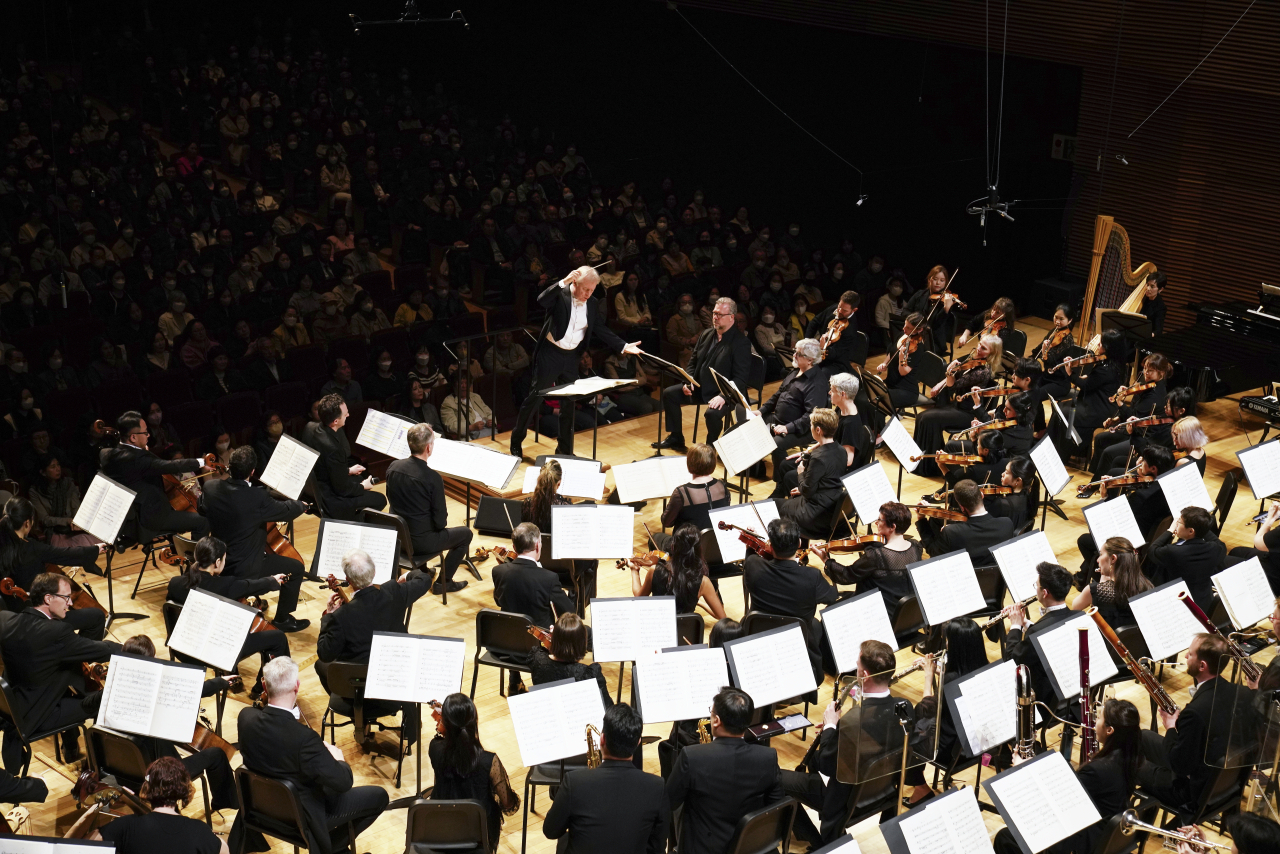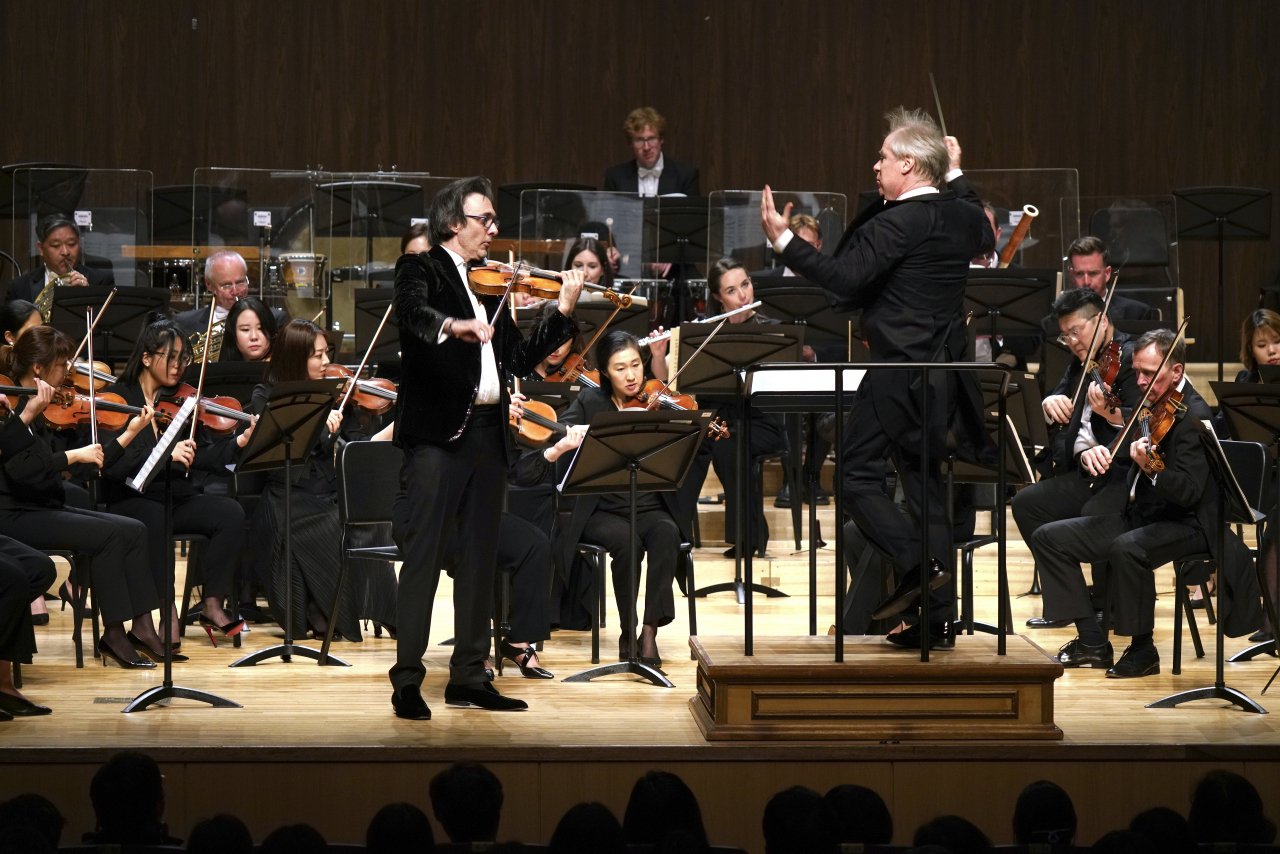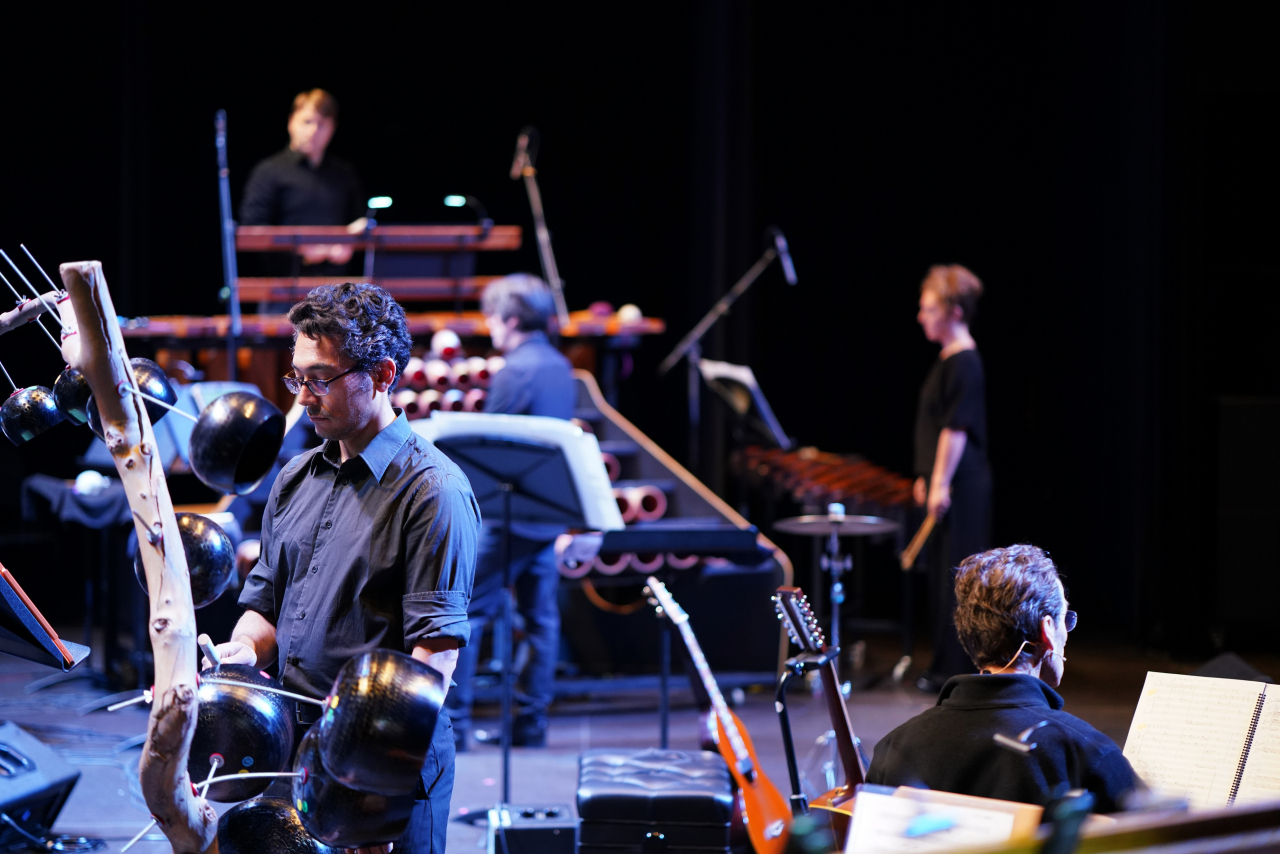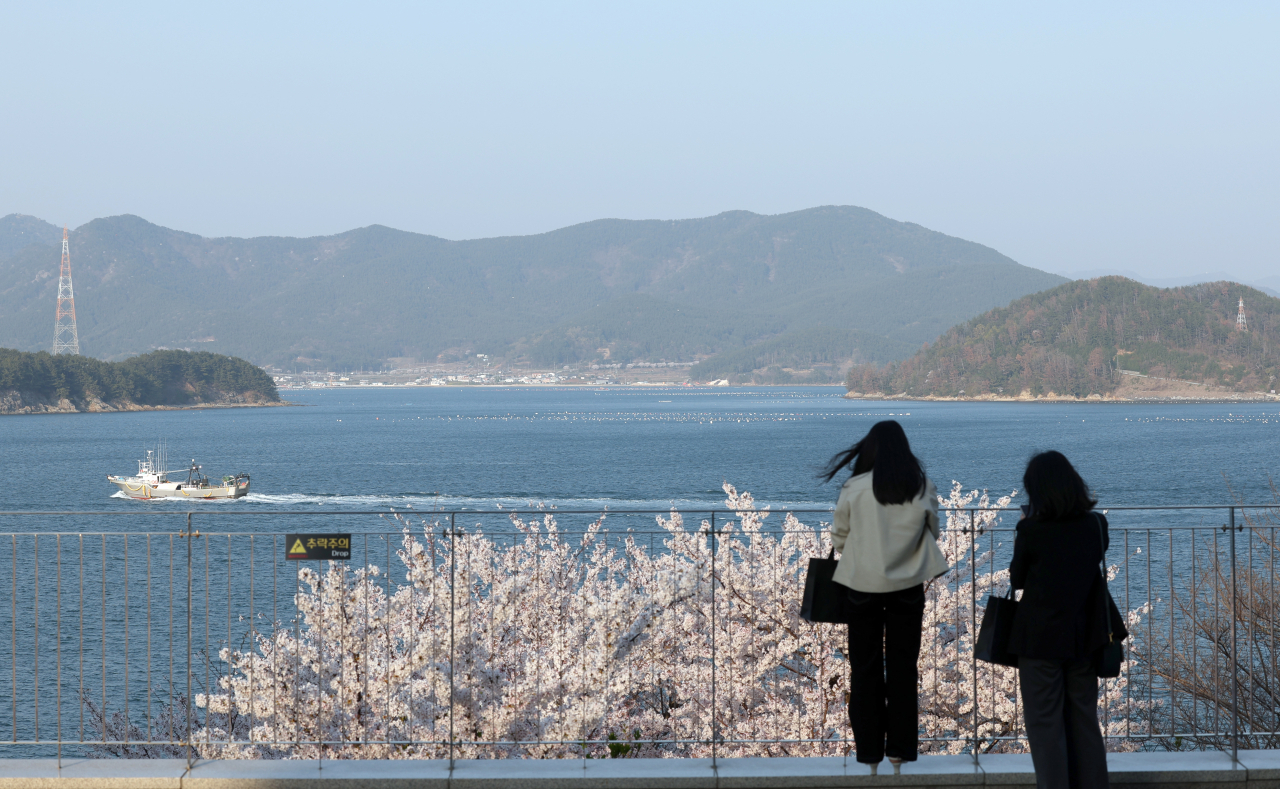[From the scene] Tongyeong International Music Festival 2023: Back in full bloom
Published : 2023-04-02 13:21:35

TONGYEONG, South Gyeongsang Province -- As the audience awaits the 21st Tongyeong Festival Orchestra’s first performance to kick off Friday evening, a sudden burst of applause erupts from one side of the audience. Stealing the thunder was former President Moon Jae-in, in attendance at the controversial music festival founded to commemorate the late composer Yun I-sang.
In his first time visiting the festival, Moon paid respects to Yun at his tomb, located right next to the Tongyeong concert hall. The ashes of Yun, who passed away in Berlin in 1995 at the age of 78, were returned to his motherland in 2018.

Tongyeong, a coastal city with a population of about 35,000, had two presidents visiting the city on the day. Earlier the same day, President Yoon Suk Yeol was also in town to celebrate Fisheries Day.
The former president’s visitation and a significant increase in festivalgoers -- and even anti-TIMF protests returning after three years -- added vibrancy to the city and an indication that the festival is returning to its normal routine.
Protestors held banners reading "What's the deal with the Music Festival for Yun I-sang, who was a leader of the Juche ideology following Kim Il-sung?" -- a reminder of a fading ideological conflict and the strained relationship with his native country after he was accused of being a spy and abducted by South Korea’s Korean Central Information Agency in 1967.
Yun was tortured, imprisoned and issued a death sentence as part of the "East Berlin Affair" that accused 34 South Koreans of spying for North Korea. The controversial incident, which many scholars believe was politically motivated and fabricated, turned Yun into a vocal critic of the Park Chung-hee regime. Before being feted in recent years, in his own lifetime Yun faced persecution and censorship in South Korea.

Back at the concert hall, which offers great sound quality according to musicians like violinist Leonidas Kavakos, the former president listened to three pieces seamlessly connected under the baton of maestro David Robertson with the Neue Vocalsolisten Stuttgart, a seven-member German vocal group.
Ravel’s "Frontispice" grabbed the attention of the audience, raising curiosity and smoothly linking to Luciano Berio’s 1968 piece "Sinfonia" and Charles Ives’ "The Unanswered Question."
After intermission, Kavakos captured the audience not only with his stature and velvet blazer with twinkling sequins, but even more so with his capturing virtuosity as he performed Brahms' Violin Concerto in D major, Op. 77.

The contemporary music in the first half of the performance might have been less challenging for those who took part in the Asia premier of two works of Harry Partch, an American composer, instrument maker and music theorist. He designed his own musical scale of 43 tones as opposed to the 12 used in traditional Western music. He invented over 20 unique musical instruments to play music he composed. His radical creations were both a blessing and curse, as his music was unperformable without the instruments he created.
That’s probably why his music has the dedicated Partch Ensemble, which finally took the stage after a one-year delay due to pandemic restrictions, to perform "Daphne the Dunes" and "Plectra and Percussion Dances." (Last year, many musicians could not attend due to the mandatory quarantine period.)

On the black box stage were unique instruments created by Partch, certainly unfamiliar for most of the audience, like the gourd tree and corn gong, kithara, chromelodeon, cloud chamber bowls and five different marimbas. While a couple instruments were recognizable to the audience, like an adapted viola, the way the instruments were performed was unexpected; the viola was played vertically like a cello.
The instruments were arranged in a way so that most performers showed their backs. Performers did not stick to one particular instruments, they would move from one instrument to another. Among the audience, some dozed off while many others exchanged expressions of amazement -- certainly highlighting what the music festival under Chin’s directorship looks like.
This year, unlike the last or the year before, there was another unusual occurrence with the cherry blossoms; they had not yet showed their splendor for previous festivals, but now they were in full bloom.

http://www.koreaherald.com/common/newsprint.php?ud=20230402000097